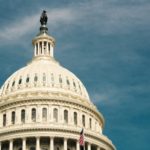A bipartisan group of 12 U.S. senators has expressed significant concerns regarding the Transportation Security Administration’s (TSA) expansion of facial recognition technology at airports across the country. The senators have formally requested the Department of Homeland Security’s (DHS) Inspector General to investigate the TSA’s use of this technology, citing issues related to privacy, surveillance, and insufficient oversight.
The senators’ primary concern is that the widespread deployment of facial recognition technology could result in the creation of “one of the largest federal surveillance databases overnight without authorization from Congress.” This apprehension is articulated in a letter signed by the senators, which states, “This technology will soon be in use at hundreds of major and mid-size airports without an independent evaluation of the technology’s precision or an audit of whether there are sufficient safeguards in place to protect passenger privacy.”
Despite the fact that facial recognition screenings are optional, the senators have pointed out inconsistencies in how transportation security officers handle passengers who choose to opt out. The letter notes that passengers opting out are often informed they may face delays, which could be perceived as coercive. The senators have called for an investigation into the effectiveness of the TSA’s facial recognition technology, particularly focusing on the collection and storage of travelers’ biometric data and the procedures for deleting this information after passenger verification.
The TSA plans to expand the use of facial recognition technology to more than 400 airports, potentially affecting a record number of Americans during the upcoming holiday season. This expansion is part of a broader initiative to implement biometrics across the board, as outlined by TSA Administrator David Pekoske at the South by Southwest conference last year. This move aligns with the TSA’s ongoing efforts to modernize airport security, including the recent approval for the continued use of mobile driver’s licenses (mDLs) for identity verification.
In previous legislative efforts, Senator Jeff Merkley, a Democrat from Oregon, introduced the Traveler Privacy Protection Act, which aims to prohibit the TSA from using facial recognition or matching technology in airports. The bill was endorsed by the American Civil Liberties Union but has not yet advanced out of the Senate Committee on Commerce, Science, and Transportation, which has been actively involved in discussions around data privacy and biometric technology, as highlighted in a recent Senate testimony.
The senators’ letter to DHS Inspector General Joseph Cuffari specifically requests a comprehensive review of how the TSA uses facial recognition to verify travelers’ identities, addressing both authority and privacy issues. They also highlighted that the TSA reports a three percent false negative match rate, which could result in more than 68,000 discrepancies daily if applied to all 2.3 million daily travelers.
Source: Statescoop
–
November 22, 2024 – by Cass Kennedy








Follow Us